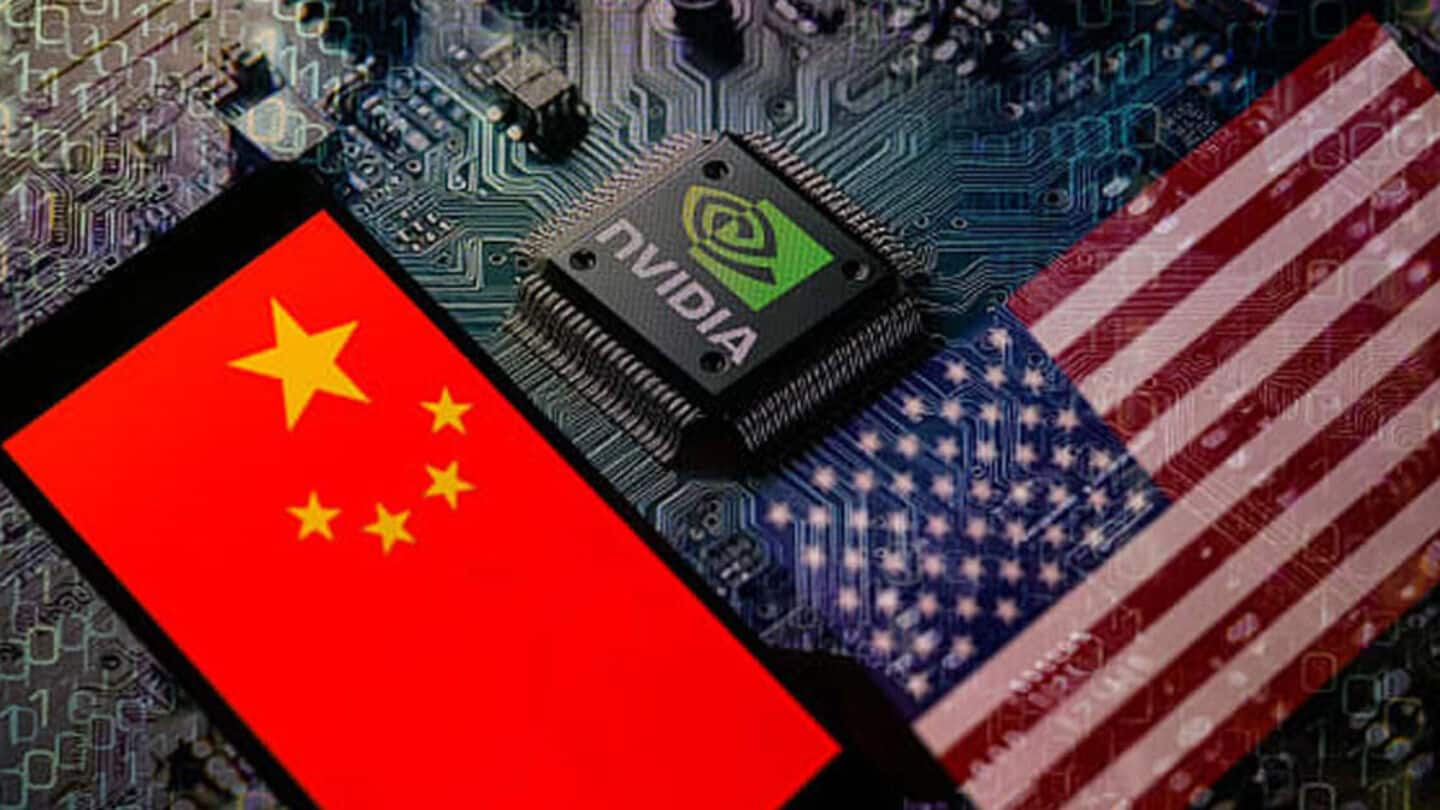
How NVIDIA became a victim of US-China trade war
What's the story
NVIDIA, a leading American chipmaker, has found itself caught in the crossfire of the ongoing trade war between the US and China. The company's H20 chip was banned by the Donald Trump administration in April 2025 over national security concerns. Despite being designed to comply with previous Joe Biden-era restrictions, US officials fear these chips could enable Chinese firms to develop military-grade AI technologies.
Tech dominance
H20 chip part of strategy to curb China's AI edge
The H20 chip, which is intentionally less powerful than NVIDIA's top-tier H100, is part of a larger strategy to prevent China from gaining an edge in AI technology. In July 2025, a partial ban lift allowed NVIDIA to sell some chips to China. However, as part of the deal, the company had agreed to pay 15% of its revenue from these sales to the US government.
Retaliation
China tightens scrutiny on US tech imports
In response to the US's tech restrictions, China has tightened its scrutiny on American tech imports, including chips from NVIDIA. The move highlights the growing tensions between the two countries over technology and trade. It also underscores how companies like NVIDIA are caught in the middle of this global power struggle for technological supremacy.
Security concerns
AI technology at the center of US-China tensions
The ongoing trade war has made AI technology a key issue in US-China relations. NVIDIA CEO Jensen Huang has warned that restricting AI chip sales to China could backfire, prompting Beijing to develop its own technology. This highlights the delicate balance between national security concerns and global technological competition in the field of artificial intelligence.